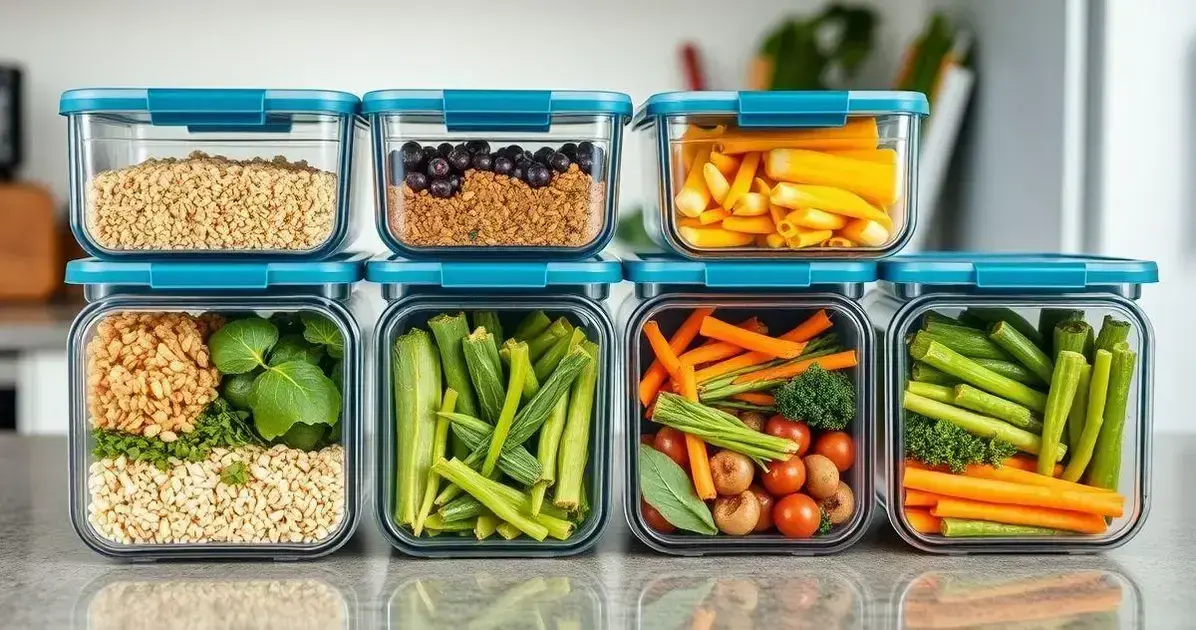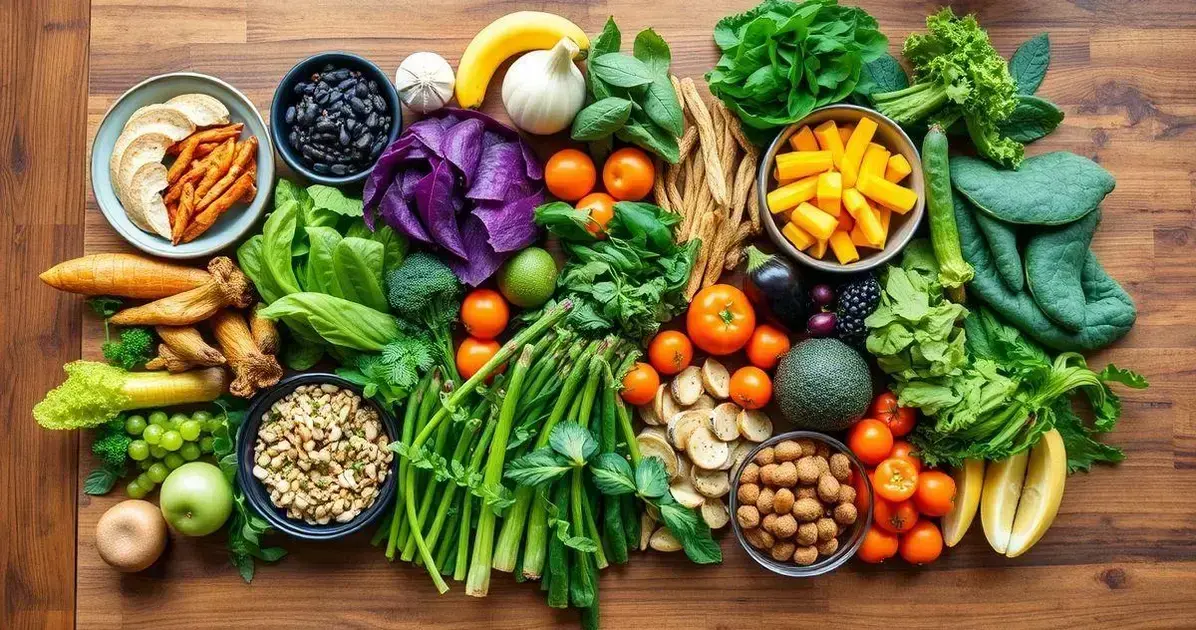Índice
Are you ready to explore the world of vegan tips and tricks? Embracing a plant-based lifestyle opens the door to new flavours, ethical choices, and a greater connection to your health and the environment.
While the journey can be exciting and rewarding, it also comes with unique challenges. From finding balanced meals to navigating social situations, knowing how to handle these moments is key to long-term success.
Whether you’re a seasoned vegan or just starting out, having the right knowledge can make all the difference. Keep reading to discover practical vegan tips and tricks that will help you thrive on your plant-based journey.
Essential Vegan Pantry Staples
Building a vegan pantry is the first step to embracing a plant-based lifestyle. With essential items on hand, cooking becomes enjoyable and convenient.
Grains
Stocking up on grains is crucial. Quinoa, brown rice, and oats are not only nutritious but also versatile. You can use them in salads, bowls, or breakfast.
Legumes
Beans are a staple in any vegan kitchen. Chickpeas, black beans, and lentils add protein and fibre to your meals. They can be used in soups, stews, or even made into delicious spreads like hummus.
Nuts and Seeds
Nuts and seeds are excellent sources of healthy fats and protein. Keep some almonds, chia seeds, and flaxseeds on hand for snacking or adding to smoothies and salads.
Fruits and Vegetables
Fresh or frozen fruits and vegetables should always be part of your pantry. They provide essential vitamins and minerals. Consider staples like spinach, tomatoes, and berries.
Condiments and Spices
Having a range of spices and condiments can elevate your meals. Keep cumin, turmeric, and sauces like sriracha or soy sauce to add flavour.
Plant-Based Milks
Explore different types of plant-based milks such as almond, soy, and oat milk. They are great for cooking, baking, or drinking on their own.
Snacks
Finally, don’t forget to stock up on healthy snacks. Vegan protein bars, popcorn, and nut butter are perfect for cravings or when you need a quick bite.
Creative Cooking Methods for Vegan Meals
Cooking vegan meals can be both fun and exciting, especially when you explore creative cooking methods. Let’s delve into some unique techniques that can elevate your plant-based dishes.
Stir-Frying
This quick cooking method retains the nutrients and vibrant colours of vegetables. Use high heat to sauté your favourite veggies like bell peppers, broccoli, and snap peas with a splash of soy sauce or sesame oil.
Grilling
Grilling isn’t just for meat! Try grilling tofu or marinated vegetables for a smoky flavour. The grill marks add visual appeal and can enhance the taste. Just brush with olive oil and your choice of seasonings.
Roasting
Roasting brings out the natural sweetness in vegetables like carrots and sweet potatoes. Toss them in olive oil, salt, and herbs, then bake in the oven until tender and caramelised. This method can also be applied to chickpeas for a crunchy snack!
Blending
Blending is perfect for smoothies and soups. Use a high-speed blender to create creamy soups or nut-based sauces. Add your favourite greens and fruits for a nutrient boost. This method ensures a quick and easy meal!
Sprouting
Sprouting seeds and legumes can increase their nutritional value and add a crunch to your salads. Simply soak them in water and allow them to germinate for a few days. Popular options include mung beans and alfalfa.
Slow Cooking
A slow cooker can be your best friend for vegan meals. Toss in your ingredients in the morning and let them cook throughout the day. This method is perfect for hearty dishes like chili and stews.
Batch Cooking
Batch cooking saves time and ensures that healthy meals are always ready. Prepare large quantities of grains, legumes, and vegetables in advance. Store them in your fridge or freezer for easy access during the week.
Vegan Meal Prep Strategies

Meal prepping can simplify your week and ensure you stick to your vegan lifestyle. By planning ahead, you save time, reduce food waste, and make healthier choices. Vegan Tips and Tricks can make meal prepping even more efficient and enjoyable.
One of the best Vegan Tips and Tricks is to plan your meals using ingredients that overlap. Batch cooking grains, beans, and roasted vegetables allows you to quickly mix and match meals without getting bored. Portioning everything properly also helps you stay on track.
Another important part of Vegan Tips and Tricks is staying organised and taking advantage of freezer-friendly foods. Label your containers and prepare snacks in advance to keep your fridge neat, avoid waste, and enjoy stress-free plant-based eating all week long.
Plant-Based Substitutes for Popular Ingredients
Finding plant-based substitutes for popular ingredients can make vegan cooking versatile and delicious. Here are some great alternatives to common non-vegan items.
Dairy Milk
Instead of cow’s milk, try using almond milk, soy milk, or oat milk. These options are creamy and can be used in cooking, baking, or drinking.
Butter
For butter, consider coconut oil or vegan margarine. Both provide similar textures and flavours in baked goods or spreads.
Eggs
Eggs can be replaced with flaxseed meal mixed with water for baking. Use one tablespoon of flaxseed meal with three tablespoons of water per egg. Alternatively, use silken tofu for scrambles or baking.
Cheese
Instead of cheese, you can use nut-based cheeses such as cashew cheese or store-bought vegan cheese. Nutritional yeast is also an excellent ingredient, adding a cheesy flavour to dishes.
Honey
Replace honey with maple syrup or agave nectar. Both are sweet and can be used in recipes that call for honey.
Meat
For a meat substitute, try tofu, tempeh, or seitan. These options are hearty and can absorb flavours well, making them excellent for stir-fries or stews.
Broth
When a recipe calls for chicken broth, use vegetable broth instead. It provides a rich flavour base for soups and sauces.
Nutritional Considerations for Vegans
Vegan Tips and Tricks include being mindful of your nutrient intake to maintain a balanced and healthy diet. When following a vegan lifestyle, it’s important to ensure you’re getting all the essential vitamins and minerals your body needs.
One of the core Vegan Tips and Tricks is to find reliable plant-based protein sources. Incorporate foods like legumes, lentils, tofu, and tempeh into your meals, along with nuts and seeds for variety and balance.
Vegan Tips and Tricks also emphasize the importance of Vitamin B12. Since it’s not naturally present in plant foods, you should consume fortified products or consider a supplement to avoid deficiency.
Other essential Vegan Tips and Tricks include combining iron-rich foods with vitamin C to boost absorption, choosing calcium-fortified plant milks, and adding omega-3 sources like chia or flaxseeds for brain health.
Don’t forget minerals like zinc and iodine. Following these Vegan Tips and Tricks will help you build a complete, nourishing plant-based diet while supporting your overall well-being.
Tips for Eating Out as a Vegan

Eating out as a vegan can be enjoyable and stress-free with a few handy tips. Here are some strategies to make your dining experience more satisfying.
Research Ahead
Before heading to a restaurant, check their menu online. Look for vegan options or dishes that can be easily adjusted. Many restaurants now offer plant-based choices, so do your homework!
Speak Up
Don’t hesitate to ask the staff about vegan options. Many chefs are willing to accommodate changes or can suggest hidden vegan gems from the menu. Asking questions helps you find delicious meals.
Explore Ethnic Cuisines
Ethnic restaurants often have a variety of vegan dishes. Explore Indian cuisine for lentil dishes or Mexican for bean-based options. These cuisines are typically rich in flavour and offer plenty of choices.
Salads and Sides
While salads can be a safe choice, make them exciting! Choose salads with vibrant ingredients like chickpeas, nuts, and a variety of vegetables. Opt for a side of roasted vegetables or quinoa to make your meal heartier.
Be Mindful of Sauces
Always ask about sauces and dressings as they might contain dairy or eggs. Request them on the side or ask for oil and vinegar instead. This ensures your meal stays true to your vegan diet.
Look for Vegan-Friendly Spots
Some restaurants specialise in vegan cuisine. Look for plant-based restaurants, as they will have an array of options and can offer creative dishes that meet your dietary preferences.
Stay Flexible
Be ready to adapt your meal choice. If a dish looks appealing but has non-vegan ingredients, ask if they can substitute or omit them. Many places are willing to work with you for your dining satisfaction.
Eco-Friendly Practices for Vegan Living
Vegan Tips and Tricks can make living a plant-based lifestyle even more rewarding when paired with eco-friendly habits. Here are some effective strategies to help you minimise your environmental impact while enjoying mindful eating.
Choosing local and seasonal foods is one of the most practical Vegan Tips and Tricks. It helps reduce transportation emissions and supports your local economy while giving you access to fresher produce.
Limiting processed foods and using reusable containers are other excellent Vegan Tips and Tricks. These habits reduce packaging waste and encourage healthier, home-prepared meals with whole ingredients.
Composting leftovers and choosing plant-based cleaning products are also part of smart Vegan Tips and Tricks. These actions reduce landfill waste and minimize exposure to harmful chemicals in your home.
Finally, supporting sustainable brands and growing your own food are powerful Vegan Tips and Tricks to deepen your connection with the environment and reduce your carbon footprint.
Embracing a Vegan Lifestyle
Transitioning to a vegan lifestyle not only contributes to personal health but also helps in fostering a more sustainable and ethical world. By incorporating plant-based tips and tricks into your daily routine, from meal prepping to exploring creative cooking methods, you can make vegan living both enjoyable and fulfilling.
As you navigate this journey, remember the importance of selecting nutritious foods, using eco-friendly practices, and advocating for your dietary needs when dining out. Every small step contributes to a larger positive impact on our planet.
With these insights and strategies, you’re well-equipped to unlock the delicious potential of vegan living, cultivating a healthier lifestyle for yourself and the environment.
Check out our article on Sustainable Lifestyle Choices to explore simple yet impactful ways to live more eco-friendly and reduce your environmental footprint.
